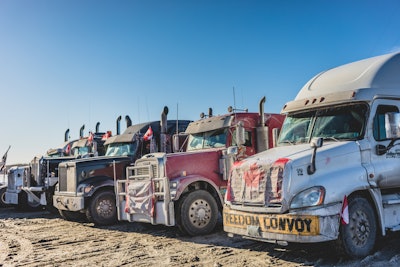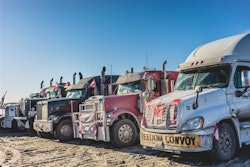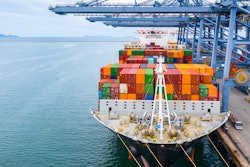
The number of protestors are only growing right now in Canada, as Canadians gather to voice their opposition to Coronavirus (COVID-19) restrictions. Civil unrest caused numerous supply chain disruptions in the past year in the United States, as many incidents blocked up major roadways and sometimes even full cities. However, this is a more direct impact to the supply chain, as Canadian truckers block numerous border pathways to and from the United States. While the protests began in Ottawa, the Canadian capital, the blockade spread to US. The Emerson Port of Entry in Manitoba. Wednesday night, access through the Ambassador Bridge, which connects Detroit, Mich. and Windsor, Ont. became completely blocked. The protests are already showing their impact on the supply chain, forcing Toyota to halt production at three Canadian plants.
A new rule requiring any commercial trucks entering Canada to be fully vaccinated against COVID-19 prompted the invasive protests. However, Prime Minister Justin Trudeau does not plan on lifting any restrictions, despite backlash and provinces lifting their own restrictions.
Per BBC:
- Since Monday drivers have been blocking the largest international suspension bridge in the world at a border crossing that makes up around a quarter of US-Canada trade.
- The closure of the Ambassador Bridge by about 100 protesters in their big rigs has been denounced by trade groups. The span connects Windsor, Ontario, to Detroit, Michigan.
- About 400 trucks remain in central Ottawa after arriving there late last month. Police said on Wednesday the protesters could be charged with "mischief to property" because they were inhibiting local residents' "lawful use, enjoyment and operation of their property".





















